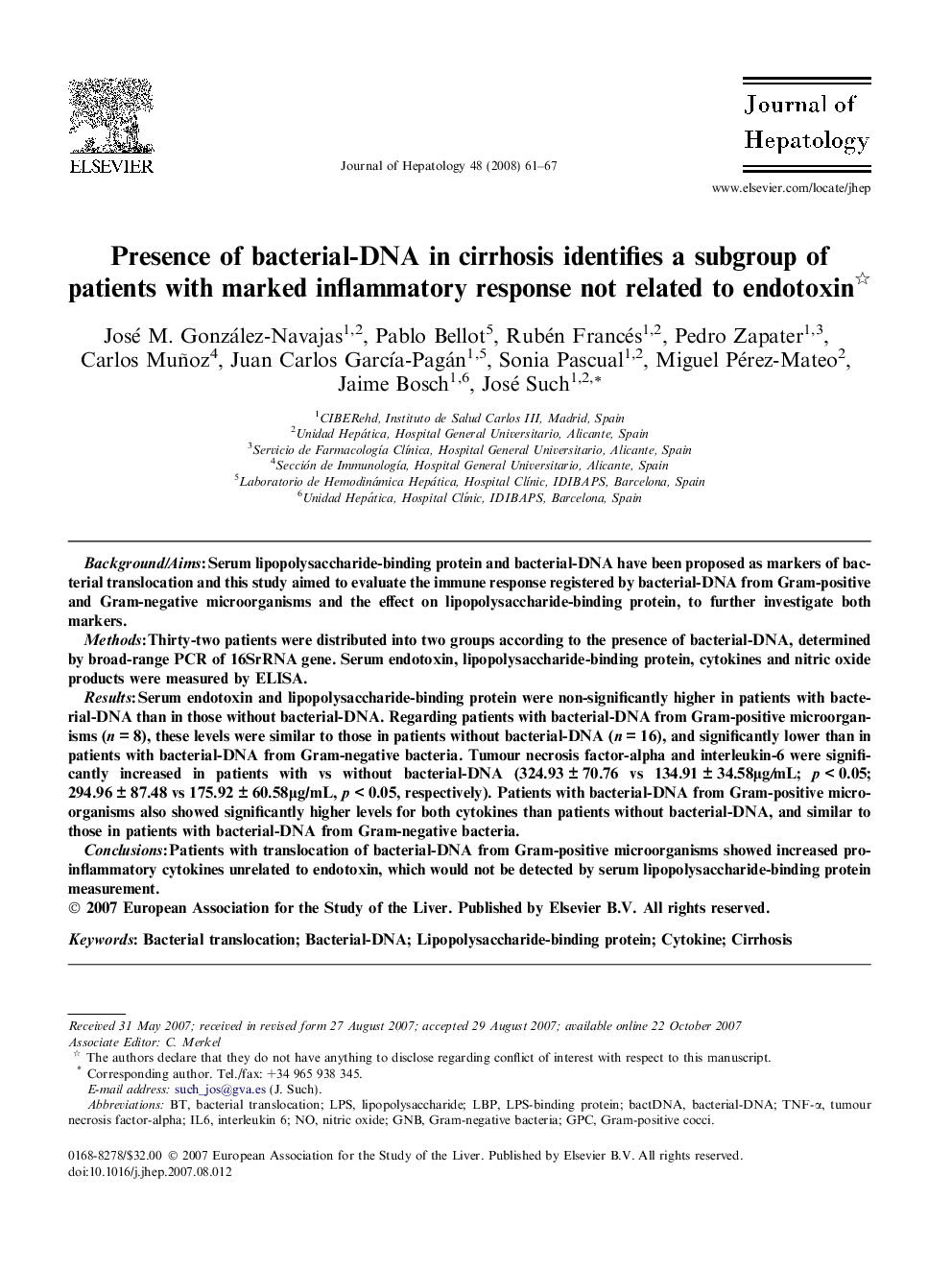| Article ID | Journal | Published Year | Pages | File Type |
|---|---|---|---|---|
| 3315452 | Journal of Hepatology | 2008 | 7 Pages |
Background/AimsSerum lipopolysaccharide-binding protein and bacterial-DNA have been proposed as markers of bacterial translocation and this study aimed to evaluate the immune response registered by bacterial-DNA from Gram-positive and Gram-negative microorganisms and the effect on lipopolysaccharide-binding protein, to further investigate both markers.MethodsThirty-two patients were distributed into two groups according to the presence of bacterial-DNA, determined by broad-range PCR of 16SrRNA gene. Serum endotoxin, lipopolysaccharide-binding protein, cytokines and nitric oxide products were measured by ELISA.ResultsSerum endotoxin and lipopolysaccharide-binding protein were non-significantly higher in patients with bacterial-DNA than in those without bacterial-DNA. Regarding patients with bacterial-DNA from Gram-positive microorganisms (n = 8), these levels were similar to those in patients without bacterial-DNA (n = 16), and significantly lower than in patients with bacterial-DNA from Gram-negative bacteria. Tumour necrosis factor-alpha and interleukin-6 were significantly increased in patients with vs without bacterial-DNA (324.93 ± 70.76 vs 134.91 ± 34.58μg/mL; p < 0.05; 294.96 ± 87.48 vs 175.92 ± 60.58μg/mL, p < 0.05, respectively). Patients with bacterial-DNA from Gram-positive microorganisms also showed significantly higher levels for both cytokines than patients without bacterial-DNA, and similar to those in patients with bacterial-DNA from Gram-negative bacteria.ConclusionsPatients with translocation of bacterial-DNA from Gram-positive microorganisms showed increased proinflammatory cytokines unrelated to endotoxin, which would not be detected by serum lipopolysaccharide-binding protein measurement.
